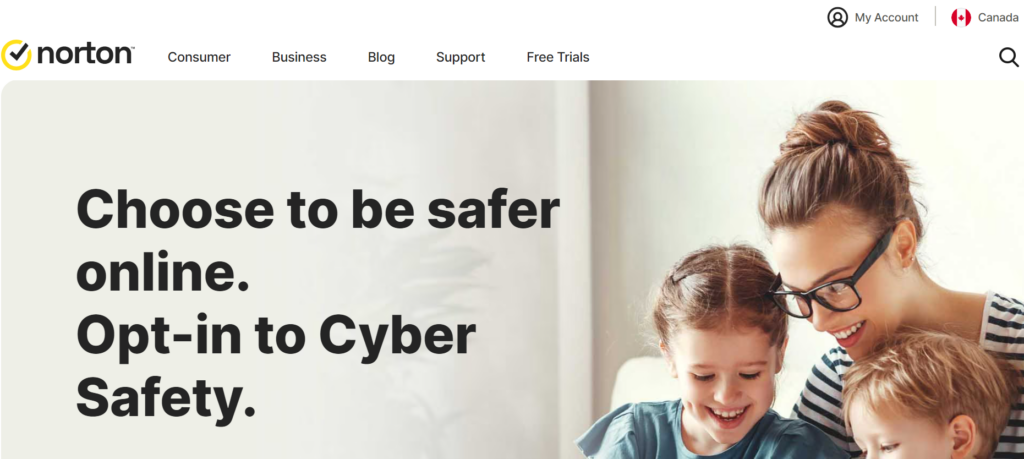
In an era where our lives are intertwined with technology, the concept of cybersecurity has never been more crucial. Whether you’re shopping online, banking from your phone, or simply browsing social media, each click carries with it a potential risk. Canada is not immune to these threats; cybercriminals are always lurking in the digital shadows. Understanding cybersecurity isn’t just for tech enthusiasts—it’s essential for everyone who wants to navigate the online world safely.
As we dive into this important topic, we will explore what cybersecurity really means and highlight common threats that Canadians face today. We’ll also discuss the impact of cyber attacks on both individuals and businesses alike. By arming ourselves with knowledge and adopting protective measures, we can significantly reduce our vulnerability online. Let’s embark on this journey together toward a safer digital experience!
What is Cybersecurity?
Cybersecurity is the practice of protecting systems, networks, and data from digital attacks. These attacks can lead to unauthorized access or damage to sensitive information. In a world where everything is interconnected, cybersecurity serves as our first line of defense.
At its core, cybersecurity encompasses various technologies and processes designed to safeguard computers and networks. It involves everything from securing software applications to implementing robust defensive measures at both the hardware and network levels.
The rise of remote work has made strong cybersecurity even more vital. Employees accessing company resources from home must be aware of potential vulnerabilities in their own devices. A secure online environment protects not only individual users but also entire organizations.
By understanding what cybersecurity entails, we empower ourselves to take proactive steps toward safeguarding our digital lives. Awareness is key in this ever-evolving landscape filled with emerging threats.
Common Cyber Threats in Canada
Canada faces a variety of cyber threats that can impact both individuals and businesses. Phishing scams are among the most prevalent. Cybercriminals often use fake emails to trick users into revealing personal information.
Ransomware attacks have also surged in recent years. These malicious programs encrypt data, demanding payment for its release. Companies large and small are at risk.
Another common threat is malware, which targets devices to steal sensitive information or disrupt operations. Trojans and worms disguise themselves as legitimate software but cause significant harm once installed.
Social engineering tactics exploit human psychology. Scammers manipulate people into providing access or confidential data through deception rather than technical means.
Staying informed about these threats is crucial in protecting oneself against potential attacks in our increasingly digital landscape. Awareness can make all the difference in maintaining security online.
The Impact of Cyber Attacks on Individuals and Businesses

Cyber attacks can leave lasting scars on both individuals and businesses. For individuals, the repercussions often manifest as identity theft or financial loss. Imagine waking up to find your bank account drained or personal information sold on the dark web. The emotional toll is just as significant—a feeling of vulnerability lingers long after such breaches.
Businesses face a different set of challenges. A single cyber attack can lead to massive data breaches that compromise customer trust and loyalty. Recovery efforts are costly, involving legal fees, public relations campaigns, and enhanced security measures.
Moreover, downtime from an attack translates into lost revenue. Companies may struggle to regain their footing while dealing with regulatory fines for failing to protect sensitive data properly. This ripple effect underscores how intertwined our digital lives have become with cybersecurity risks in today’s world.
Measures for Protecting Personal Information Online
Protecting personal information online is crucial in today’s digital landscape. Start by using strong, unique passwords for each account. A combination of letters, numbers, and symbols can significantly enhance security.
Enable two-factor authentication wherever possible. This adds an extra layer of protection that makes it harder for hackers to gain access.
Be cautious about the information you share on social media platforms. Review privacy settings to limit who can see your posts and personal details.
Regularly update software and applications on all devices. These updates often include security patches that protect against vulnerabilities.
Educate yourself about phishing scams. Recognizing suspicious emails or messages can help prevent accidental clicks that expose your data to cybercriminals. Stay informed and proactive in safeguarding your online presence.
Our Recommendation: Norton Website

When it comes to safeguarding your online presence, choosing the right cybersecurity solution is essential. We recommend checking out Norton’s website for their comprehensive range of services designed to protect you from potential threats.
Norton offers advanced antivirus protection, secure VPNs, and identity theft monitoring – all tailored to meet the needs of Canadians in today’s digital landscape. Their tools are user-friendly and effective against many cyber threats that target individuals and businesses alike.
Investing in a reliable security program not only helps keep your data safe but also grants peace of mind as you navigate through your daily online activities. With Norton, you can focus on what matters without constantly worrying about cyber attacks or breaches.
Take charge of your digital safety today by exploring what Norton has to offer. Your personal information deserves top-notch protection!











